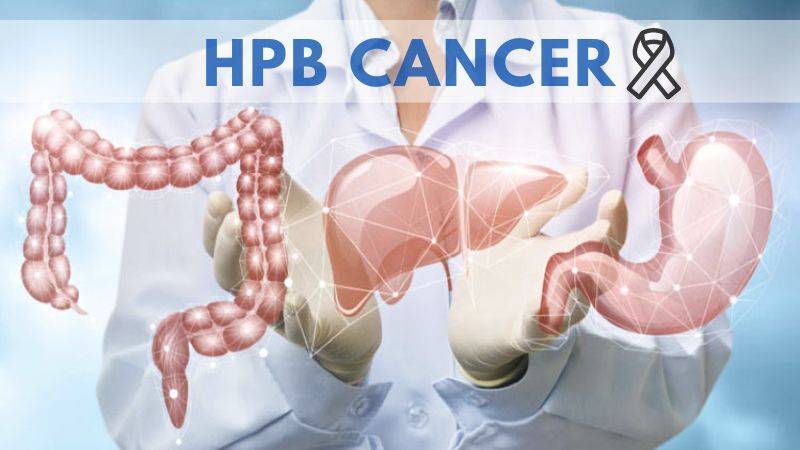Alexandra Shulman, former editor-in-chief of British Vogue, disclosed her breast cancer diagnosis.
Shulman served as the editor of British Vogue from 1992 to 2017, making her the longest-serving editor in the magazine’s history.
In an article for the Mail on Sunday, the 63-year-old wrote that her “whole world turned upside down” when she learned of the diagnosis.
Through this article, let’s explore the illness she suffered, its causes, and risk factors.
What is Breast Cancer?

Breast cancer develops in breast tissue, usually in the milk-producing glands (lobules) or the ducts that carry milk from the lobules to the nipple. It can also occur in the fatty and connective tissues within the breast.
Cancer occurs when cells begin to grow and divide uncontrollably, forming a mass called a tumor.
A tumor can be benign (noncancerous) or malignant (cancerous). Malignant tumors have the potential to invade surrounding tissues and spread to other parts of the body through the bloodstream or lymphatic system.
Breast cancer is the most common type of cancer among women. The majority of women diagnosed with the disease are over 50 years old, but it can also affect younger women.
Approximately 1 in 7 women will receive a breast cancer diagnosis in their lifetime. Although men can also develop the disease, albeit much less frequently.
Warning Signs

- First noticeable symptom: often a lump or area of thickened breast tissue
- Most lumps are non-cancerous; however, consult a doctor for evaluation
- Additional symptoms to watch for:
- Changes in size or shape of one or both breasts
- Nipple discharge, possibly blood-streaked
- Lumps or swelling in either armpit
- Dimpling on breast skin
- Rash on or around the nipple
- Changes in nipple appearance, such as becoming sunken
Note: Breast pain is typically not a symptom of breast cancer. Early detection and treatment are crucial for improving survival rates.
Causes And Risk Factors
Who is more likely to get Breast cancer
The exact cause of breast cancer is not fully understood, but various factors are known to increase the risk, including
- Age
- Family history of breast cancer
- Certain gene mutations (such as BRCA1 and BRCA2)
- Exposure to estrogen
- Obesity
- Alcohol consumption
Find out more about the causes of breast cancer.
How to lower your risk of Breast cancer
Physical activity reduces breast cancer risk
- Highly active women: 14% lower risk compared to least active women
- Risk decreases by 5% for every 2 hours of moderate to vigorous activity per week
- Activities include active jobs, recreational exercise, and chores
- Lower risk may be due to reduced insulin, hormone, and growth factor levels
Breastfeeding lowers breast cancer risk
- Longer breastfeeding duration provides greater risk reduction
- Reduced risk may be due to less frequent ovulation or changes in breast cells
Aspirin and anti-inflammatory drugs
- Regular use may slightly lower breast cancer risk
- Consult a GP before regular use; avoid if a history of stomach ulcers exists
How Breast Cancer can be Detected?

Breast cancer diagnosis may occur after routine screening or due to symptoms prompting doctor consultation. Screening methods like mammography, self-examination, and clinical examination can help detect breast cancer in its early stages.
Breast cancer clinic tests for suspected cases:
- Mammogram (X-ray of breasts) and/or breast ultrasound
- Breast ultrasound for women under 35 or to determine if a lump is solid or liquid
Biopsy: sample of cells taken from the breast to test for cancer
- May include a scan and needle test on lymph nodes in the armpit
- Various biopsy methods depending on the doctor’s knowledge of the condition
Needle aspiration:
- Small needle extracts cell sample or drains benign cysts
- No tissue removal
Needle biopsy (most common):
- Large needle obtains tissue sample from breast lump
- Local anesthesia may be used
- Guided needle biopsy may be suggested for more precise diagnosis
- Differentiates between invasive cancer and non-invasive changes (e.g., DCIS)
Vacuum-assisted biopsy (mammotome biopsy):
- Needle attached to suction tube to obtain sample and clear bleeding from the area
Stages, Types and Grades of Breast Cancer

Staging indicates cancer size and whether it has spread. Grading assesses the abnormality of cancer cells under a microscope.
Staging System
- Stage 0 (DCIS): pre-invasive breast cancer; cells within breast ducts without spreading to surrounding tissue
- Stage 1: early-stage breast cancer; small cancer only in breast tissue or nearby lymph nodes
- Stage 2: early-stage breast cancer; cancer in the breast and/or nearby lymph nodes
- Stage 3 (locally advanced breast cancer): cancer spread to lymph nodes near the breast, breast skin, or chest wall
- Stage 4 (advanced/secondary/metastatic breast cancer): cancer spread to other body parts
Cancer Grades
- Low grade (grade 1): Slow-growing cells resembling normal breast cells; arranged in small tubules (ductal) or cords (lobular); better prognosis
- Intermediate grade (grade 2): Moderately differentiated cells, quite different from normal breast cells; intermediate prognosis
- High grade (grade 3): Fast-growing cells, very different from normal breast cells; worse prognosis
Low-grade cancers grow slower than high-grade cancers, which are more likely to recur after treatment. However, grading only provides a general guide, as individual cancers may behave differently.
Doctors use stage and grade to determine the appropriate treatment.
Treatment for Breast Cancer

Primary treatments for breast cancer encompass:
- Surgical procedures
- Chemotherapy
- Radiation therapy
- Hormonal therapy (also referred to as endocrine therapy)
- Targeted cancer medications
- Bone fortifying drugs (bisphosphonates)
Your treatment plan may involve a combination of these options, tailored to your specific circumstances.
Your doctor will consider a variety of factors when determining the most appropriate treatment for you.
What are the chances of Survival with Breast Cancer?
Generally, survival rates for breast cancer are favorable, especially when detected early. This can be attributed to screening, prompt diagnosis, and enhanced treatment methods.
Several factors, influence survival rates, include:
- Cancer type and stage
- Fitness level
- Prior treatments
so it’s impossible to predict precisely how long an individual will live.
Survival Rates for All Stages of Breast Cancer
Study shows for women in England diagnosed with breast cancer:
- Approximately 95 out of 100 women (around 95%) survive for at least one year following diagnosis
- About 85 out of 100 women (around 85%) survive for five years or more after diagnosis
- Roughly 75 out of 100 women (around 75%) survive for ten years or more after diagnosis
Statistics are derived from averages involving numerous patients, and they cannot precisely predict individual outcomes. Each patient is unique, and treatment responses can differ significantly from one person to another.
Living with Breast cancer
Handling a breast cancer diagnosis can be overwhelming.
- A cancer diagnosis can trigger a range of emotions. Everyone reacts differently, and various feelings may arise as you come to terms with your diagnosis.
- Educate yourself about your cancer and treatments. Seek help when needed and consider practical strategies like organization, goal-setting, and planning enjoyable activities.
- Discuss your situation with friends, family, or professionals, such as cancer information nurses or counselors, to receive emotional support.
- Breast cancer treatments may cause physical issues affecting self-esteem and relationships. Consult your healthcare team to manage side effects like pain, fatigue, or early menopause symptoms.
- Address practical challenges like finances, work, childcare, and home modifications by seeking guidance from your healthcare team. Tackling these issues early can prevent them from becoming major problems later.
Alexandra Shulman’s Brave Battle With Breast Cancer

After experiencing intermittent pain in her left breast over the summer, Shulman scheduled an appointment with her doctor. She was later diagnosed with the disease following an ultrasound scan at Princess Grace Hospital in Marylebone.
Shulman recounted the “chilling fear that engulfed her” upon hearing the diagnosis.
In an article for the Mail on Sunday, she shared her initial optimism as she entered Princess Grace Hospital on a bright autumn day. She described receiving reassuring news after a mammogram came back clear, but things took a dramatic turn during the subsequent ultrasound scan.
A female radiographer discovered the problem by pressing an area under her breast. “She immediately said, looking at the screen, that she could see something. And she didn’t like what she saw. She was certain it wasn’t a simple cyst,” Shulman wrote.
Her “world turned upside down” when a doctor informed her that a tumor had been found. The tumor had not initially appeared on the mammogram because it was situated deep within the breast.
Shulman said when doctors started speaking of radiotherapy, hormone treatment, and chemotherapy, she realized she was in the “land of the sick”.
Following the treatment, the cancer was successfully removed. Her oncologist, Prof Schmid, declared that she had triumphed over the disease.
To celebrate the news, Shulman treated herself to a stylish dress and scheduled a hair appointment.
Shulman, the daughter of film critic and author Milton Shulman and writer Drusilla Beyfus, began her fashion journalism career in 1982 at The Tatler.
She later worked at the British edition of GQ, becoming editor in 1990 before assuming the role of editor-in-chief of Vogue in 1992.
In a Nutshell
Shulman’s journey as a cancer survivor reminds us of the importance of fighting cancer strongly and underscores the significance of early detection in improving the quality of life for those affected by the disease.
Her story highlights the importance of being aware of your body and any changes that may occur. This is a reminder to all of us to stay informed about our health and to be proactive in seeking medical attention if we notice any changes.
Take care of Yourself!
Also Read






